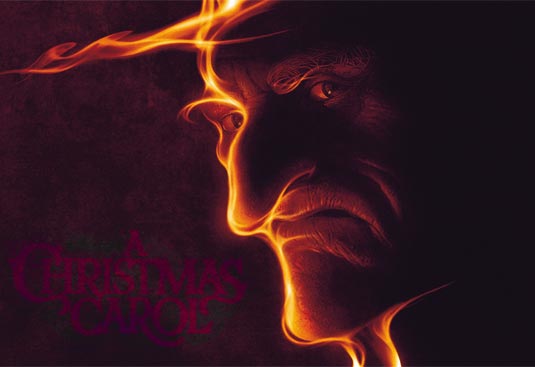
I am sure you have been appalled at the violence we have witnessed in the Middle East this week. One of the first and most perceptive challenges to the makers of the provocative film “Innocence of Muslims”, comes from a fellow evangelical pastor and film maker, Steve Martin. On his blog The New Evangelical Partnership for the Common Good, he writes,
“I have no sympathy for anyone who would assassinate a US ambassador. But I have even less sympathy for filmmakers who spread hatred and for pastors who knowingly incite violence.”
He then asks,
“Which is the true story of America? Is it that of hatred that stokes violence, or of friends who join hands across religious lines to work for the good of all? Those who attacked Amb. Stevens, thanks to sociopaths like Terry Jones and filmmaker Sam Bacile, believe we are a violent people bent on domination. Sadly, there is some truth to that perception. But I believe that goodness and love is the true story of America, and certainly of the Evangelical community. Goodness and love, however, rarely make good news. It’s time that they do.”
Jesus is the King of the Jews from Stephen Sizer on Vimeo.
While the film “The Innocence of Muslims” which denigrates Mohammed, continues to inflame tensions across the Middle East, another incident this week typifies how some Jewish fundamentalists portray Jesus. Vandals from an illegal Jewish settlement near Jerusalem set fire to the entrance door of the Latrun Monastery early Tuesday and spray-painted slogans like “Jesus is a monkey”.
Upsetting? How should we react? The best way to introduce Muslims to Jesus is not to denigrate Islam or cast aspersions on Mohammed. The best way to introduce Jews to Jesus is not to denigrate Judaism or demonise Israel. The best way is the simplest way, to demonstrate the love of Jesus and invite them to meet him too.
These Sunday mornings through the Autumn, we are exploring John’s Gospel discovering that Jesus is indeed God’s love in person. So far we have discovered from John 1, that Jesus is nothing less than God on earth and that Jesus is the Lamb of God, the one who takes away our sin. Today I want us to realise that Jesus is also the Jewish Messiah.
As we sit at the feet of the Master, notice three parts:
Andrew tells Peter and they follow Jesus (John 1:35-42)
Philip tells Nathaniel and they follow Jesus (John 1:43-49)
Jesus confirms their faith and promises more (John 1:50-51)


 Its been a pretty good time for pharmaceutical company shares – at least those selling stress reducing medications… First, there was the government sponsored report that revealed the next generation of home buyers will struggle to even get a toe hold on the property ladder. Whereas in 2000, house prices averaged four times annual earnings, by 2026, house prices will cost 10 times average earnings – so mortgages will get costlier and take longer to pay off. The solution? Simple. Live with your parents until you can move in with your children…
Its been a pretty good time for pharmaceutical company shares – at least those selling stress reducing medications… First, there was the government sponsored report that revealed the next generation of home buyers will struggle to even get a toe hold on the property ladder. Whereas in 2000, house prices averaged four times annual earnings, by 2026, house prices will cost 10 times average earnings – so mortgages will get costlier and take longer to pay off. The solution? Simple. Live with your parents until you can move in with your children…
 When I moved to Bristol about 32 years ago to train at Trinity College it took me some while to figure out why our road was called “Black Boy Hill” and the road next door with all the shops was called “White ladies walk”. I late discovered the ignominious role ports like Bristol and Liverpool played in the slave trade. The many fine buildings in these cities were built with the profits, as was this very church. It is easy to become desensitised to the suffering that occurred in our distant history. The British government has been careful in the way it has expressed sorrow for the past, to avoid a flood of legal claims by the descendants of slaves demanding compensation. Even art does not escape politicisation. We can recognise paintings that epitomise our national heritage – scenes like these painted by John Turner. But what about this one? Recognise it? Painted in 1840, it hangs in Boston’s museum of fine art. Know what Turner is saying? Its title is “The Slave Ship” but Turner wasn’t satisfied. It has a subtitle, “Slavers throwing overboard the dead and dying, Typhoon coming on.” “It kicks you in the gut” says art historian Simon Schama. Turner has captured one of the most shameful episodes of the British Empire, when 132 men, women and children, their hands fettered, were thrown into shark-infested sea, so that traders could claim the insurance for their loss. When the transatlantic slave trade was abolished in the British Empire, two hundred years ago, estimates suggest there were around 11 million slaves in the world.
When I moved to Bristol about 32 years ago to train at Trinity College it took me some while to figure out why our road was called “Black Boy Hill” and the road next door with all the shops was called “White ladies walk”. I late discovered the ignominious role ports like Bristol and Liverpool played in the slave trade. The many fine buildings in these cities were built with the profits, as was this very church. It is easy to become desensitised to the suffering that occurred in our distant history. The British government has been careful in the way it has expressed sorrow for the past, to avoid a flood of legal claims by the descendants of slaves demanding compensation. Even art does not escape politicisation. We can recognise paintings that epitomise our national heritage – scenes like these painted by John Turner. But what about this one? Recognise it? Painted in 1840, it hangs in Boston’s museum of fine art. Know what Turner is saying? Its title is “The Slave Ship” but Turner wasn’t satisfied. It has a subtitle, “Slavers throwing overboard the dead and dying, Typhoon coming on.” “It kicks you in the gut” says art historian Simon Schama. Turner has captured one of the most shameful episodes of the British Empire, when 132 men, women and children, their hands fettered, were thrown into shark-infested sea, so that traders could claim the insurance for their loss. When the transatlantic slave trade was abolished in the British Empire, two hundred years ago, estimates suggest there were around 11 million slaves in the world.